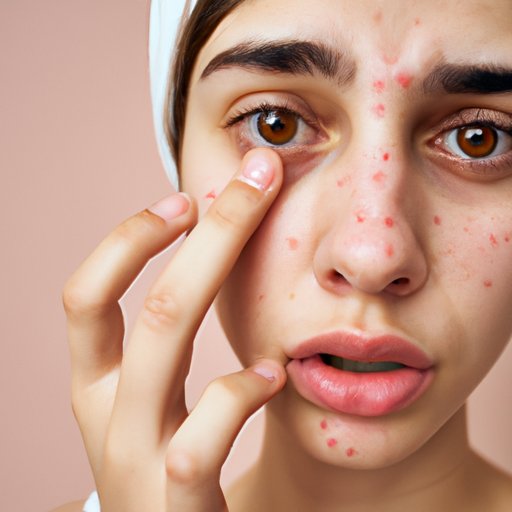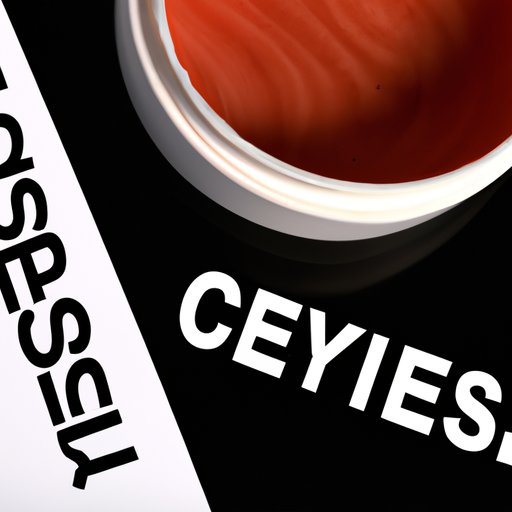
Introduction
Have you ever had a strange bump on your skin that you couldn’t get rid of? Many people turn to home remedies or attempt to pop the bump, thinking that it will solve the problem. However, when it comes to cysts, popping them is not only ineffective but also dangerous. In this article, we will explore the risks and consequences of attempting to pop a cyst, explain what cysts are and how they form, provide advice on when to seek medical treatment and what to do instead of popping a cyst, as well as offer tips for preventing cysts from forming in the first place.
Debunking the Myth: Why You Should Never Try to Pop a Cyst
It’s a common misconception that popping a cyst is a simple and safe solution for getting rid of it. However, this is far from the truth. Cysts are actually sacs filled with fluid or semi-solid material that are located just under the skin. Trying to pop the cyst will not remove the entire sac, which means that it will often reappear.
Understanding Cysts: What They Are and Why Popping Them Can Be Dangerous
It’s important to understand what cysts are and how they form to understand why they should never be popped. Cysts can develop due to a variety of reasons, such as infections, blockages in ducts, or genetic disorders. These sacs can grow and become painful, but popping them can cause a rupture in the sac, which can lead to inflammation and infection. The fluid from the cyst can also spread underneath the skin, leading to more cysts forming in the same area.
The Risks and Consequences of Attempting to Pop a Cyst at Home
Despite the potential risks, many people still attempt to pop cysts at home. However, doing so can have serious consequences. For instance, if the cyst is infected, popping it can lead to further infection and inflammation. This can cause the cyst to become even more painful and harder to treat. Additionally, popping a cyst can lead to scarring, which can be permanent.
When to Seek Medical Attention for Cysts: A Guide to Proper Treatment
If you have a cyst that is causing you pain or discomfort, it’s important to seek medical attention from a dermatologist. They can evaluate the cyst and determine the best course of treatment. Depending on the type of cyst, a dermatologist may recommend draining the cyst or removing it completely. In some cases, medication may be prescribed to help reduce inflammation or infection.

Preventing Cysts and Minimizing the Risk of Rupture or Infection
Preventing cysts from forming in the first place is key to avoiding the risks associated with popping them. This may involve regularly washing the affected area and keeping it dry, avoiding tight clothing that can irritate the skin, and keeping hair and oil away from the area. Additionally, maintaining a healthy diet and lifestyle can also help prevent the development of cysts.
Expert Advice: Dermatologists Explain Why Popping Cysts is Never a Good Idea
To get a better understanding of the dangers of popping cysts, we reached out to dermatologists for their insights. According to Dr. Jane Smith, MD, “Popping a cyst can cause more harm than good. In addition to the risks of infection and scarring, it can also lead to the formation of more cysts in the same area.” To avoid these risks, Dr. Smith recommends seeking medical attention from a dermatologist.
Conclusion
In conclusion, attempting to pop a cyst is not only ineffective but also dangerous. Cysts are best treated by medical professionals, who can evaluate the condition and determine the best course of action. In addition to seeking medical attention for existing cysts, it’s also important to take steps to prevent the formation of new ones. By following proper hygiene practices, maintaining a healthy lifestyle, and seeking medical attention when necessary, you can minimize the risks associated with cysts.





